#sphagnum bog
Explore tagged Tumblr posts
Text
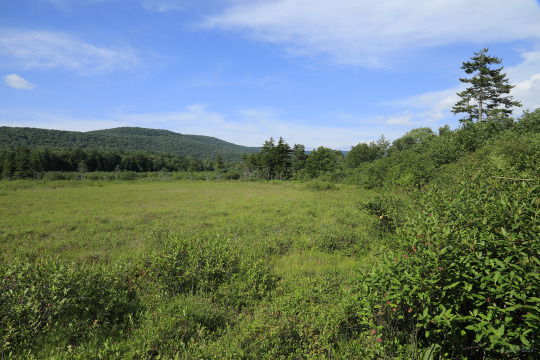
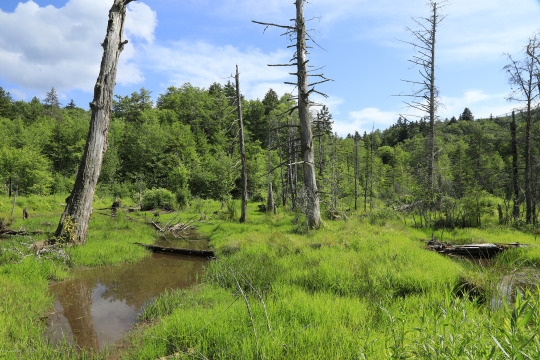
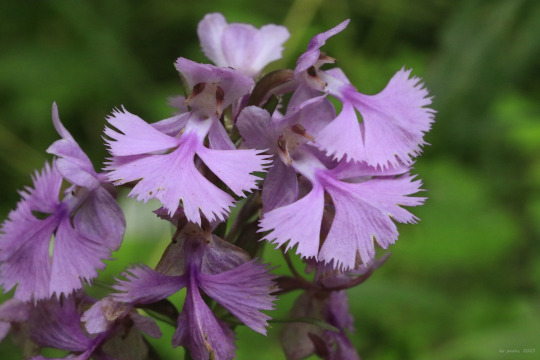
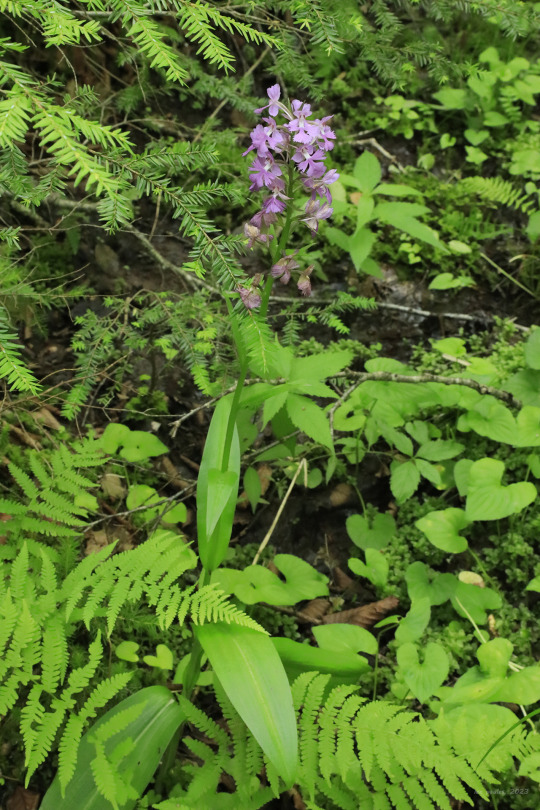

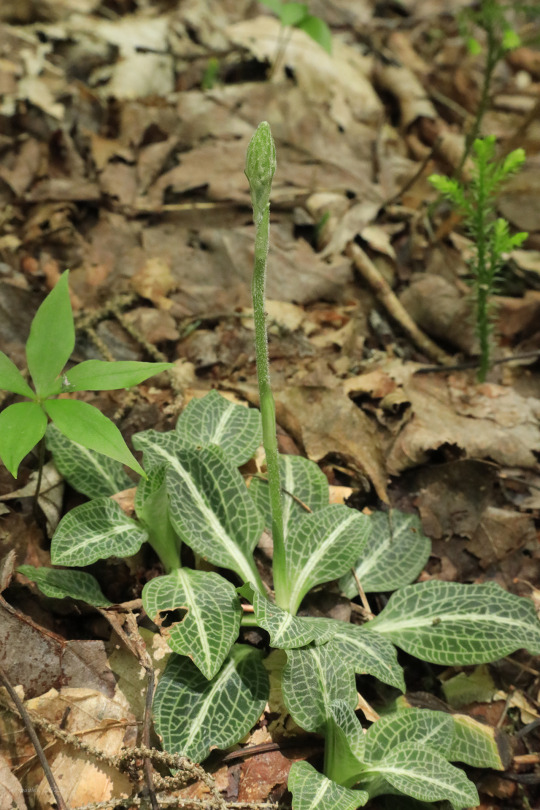
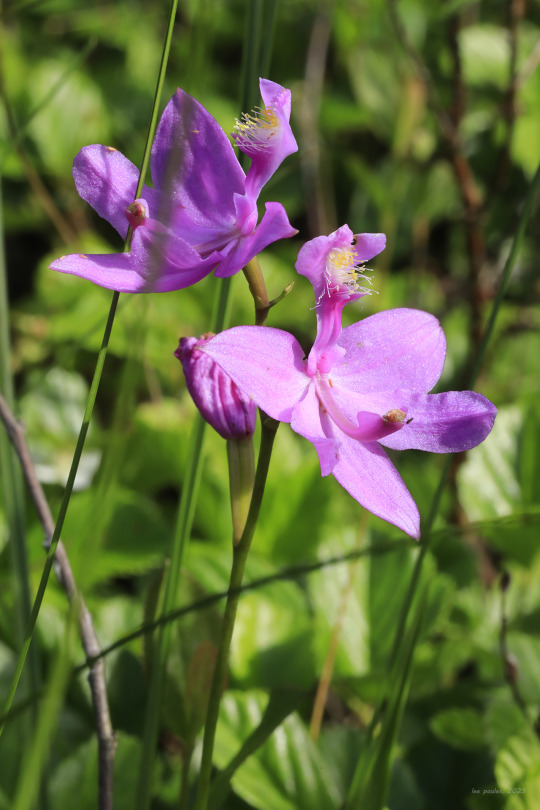
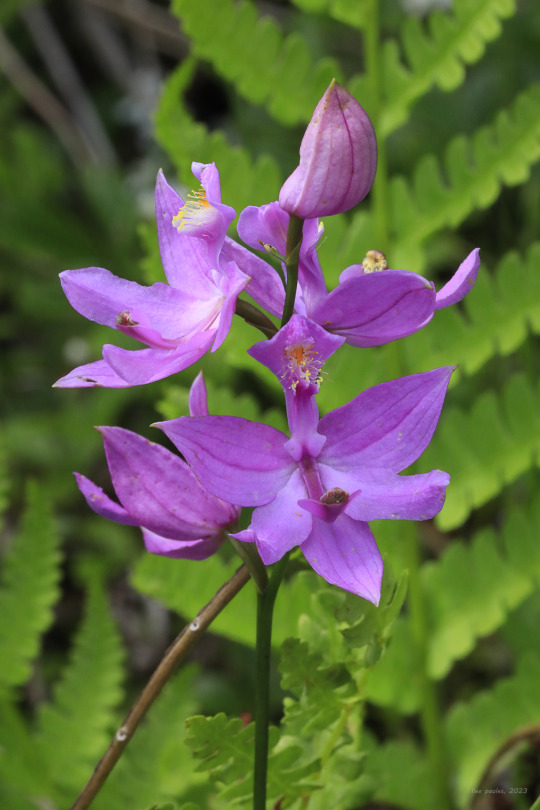



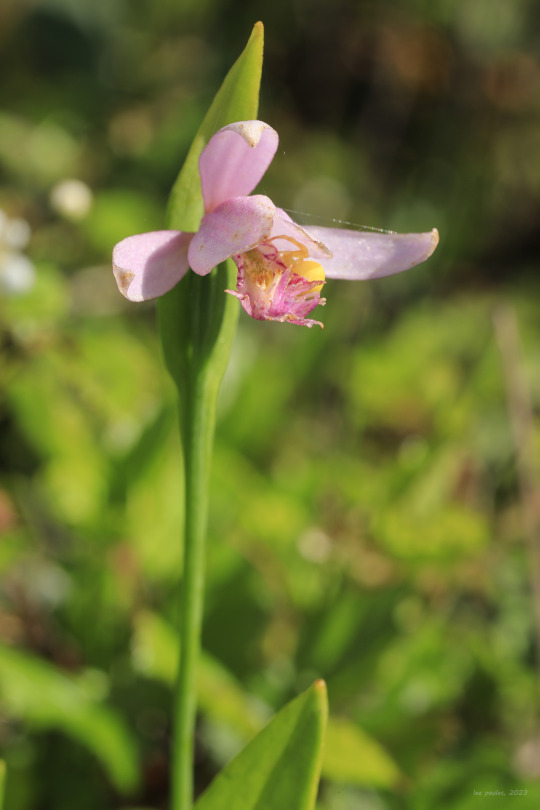

Part 1: Early Summer Wildflower Palooza, Cranberry Glade. It's orchid week at Cranberry Glades! Ok - the event may not be quite as exciting as Shark Week on Discovery, but plant nerds such as me experience something approaching tingly nipples at the prospect of getting up close and personal with grass pinks and snakemouths. A sampling of the many orchids now in bloom . . .
From top: greater purple fringed orchid (Platanthera grandiflora), a tall, leafy-stemmed beauty with clustered, intricately-fringed lavender flowers; downy rattlesnake plantain (Goodyera pubescens), a common terrestrial orchid of eastern woods with a striking, reticulated pattern in its leaves (this one is getting ready to bloom); the flamboyantly-beautiful tuberous grass pink (Calopogon tuberosus var. tuberosus), whose nectarless flowers deceptively imitate the magenta color of those of other bog plants, such as meadow phlox (following post), to draw pollinators; a ragged fringed orchid (Platanthera lacera), also known as green fringed orchid, whose fragile, frilly green-white flowers are hard to spot in the bog underbrush; the dainty rose pogonia (Pogonia ophioglossoides), also known as snakemouth orchid, due the tooth-like protuberances on its lower lip (note the sneaky goldenrod crab spider (Misumena vatia) hiding in the flower in the second photo, waiting to pounce on an unsuspecting bee, the orchid's primary pollinator); and northern tubercled orchid (Platanthera flava), another orchid with green-white flowers that can be difficult to spot in the bog underbrush.
#appalachia#vandalia#west virginia#wildflowers#flora#allegheny mountains#monongahela national forest#cranberry glades#wetlands#bog#sphagnum bog#summer#orchids#highland scenic highway#wv route 150#greater purple fringed orchid#downy rattlesnake plantain#tuberous grass pink#ragged fringed orchid#green fringed orchid#rose pogonia#snakemouth orchid#northern tubercled orchid#goldenrod crab spider
110 notes
·
View notes
Text


Sphagnum moss aka the best place to nap if you don't mind getting a little moist
665 notes
·
View notes
Text
Choose your own adventure comic, poll below!
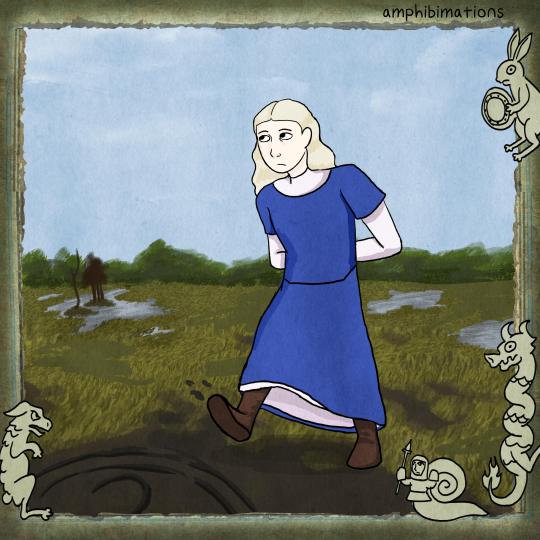
As you stand on the vast moorland, near where the hills end and the bog starts, your mind rushes with anticipation. Today, you are going to RAISE THE DEAD!!!
… More specifically, you’re going to try necromancy on some dead frogs. You’ve been practicing for months, and now that you’re 12 years old, you feel like you should at least be able to make small animal skeletons move.
First, you’ll need to find some bones.
All you need to do is search the large, carnivorous pitcher plants and sundews that grow in the area. There are a lot of plants, so it would be easier if you had someone to help you search. This is where your pet golem, Pete, will come in handy. You like to mold him into a different shape every time you remake him.
This collaborative choose-your-own-adventure comic is called Codex Calluna. A new page will be posted every Saturday evening (est). If you would like to, reblogs mean more people will be able to see this and participate!
Archive blog with only the comic pages: here
#codexcalluna#codex calluna#webcomic#comic#comics#medieval fantasy#medieval#cyoa#choose your own adventure#poll#tumblr polls#cyoa game#cyoa poll#poll game#polls#soil#dirt#necromancy#necromancer#oc#oc art#medieval art#peat#bog#sphagnum
156 notes
·
View notes
Text
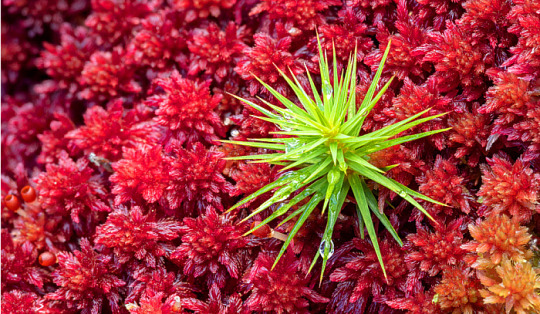
Polytricum Moss (Polytrichum spp.) growing through a bed of red Sphagnum Moss (Sphagnum spp.) in blanket bog
Photo by Alex Hyde
#polytricum moss#polytrichum#moss#sphagnum#sphagnum moss#bog#bog moss#red#red moss#red plants#plants#botanical#plant photography#nature
120 notes
·
View notes
Text
ROUND 3: 1925 TRISTATE TORNADO (sky) VS SPHAGNUM MOSS (bog)

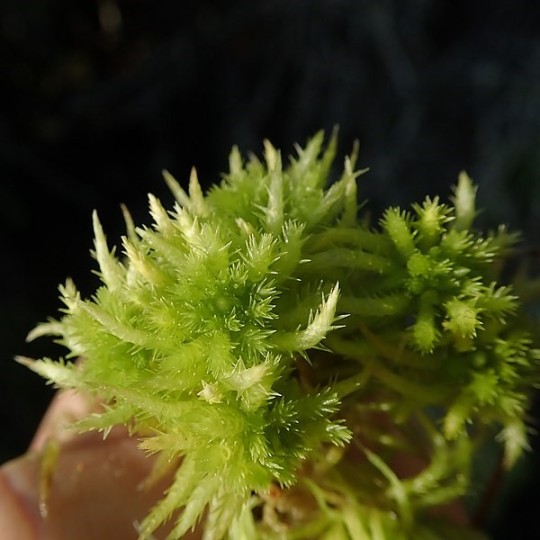
#tournament#now kill#i hope this is the right moss this time T-T#f3#tornado#moss#sphagnum moss#sphagnum#bog#peat bog#smack barm peat wet
405 notes
·
View notes
Text

A nice chunk of mouldering birch wood in the sphagnum bog. <3
52 notes
·
View notes
Photo
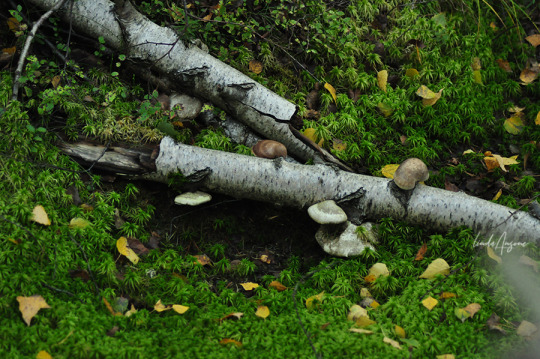


#woods#bog#moss#sphagnum#mushrooms#fungi#polypore#hoof fungus#birch polypore#nature#nature photography#original photographers#photographers on tumblr#birch tree
321 notes
·
View notes
Text


Sphagnum sp. / Torvmose
#moss#bryophytes#bryophyta#sphagnum#torvmose#bog moss#biology#nature#naturecore#science#forest#forestcore#cottagecore#photography#fairycore#dirtcore#gremlincore#goblincore#forest aesthetic#mine
23 notes
·
View notes
Text

©Lunaladee
9 notes
·
View notes
Text
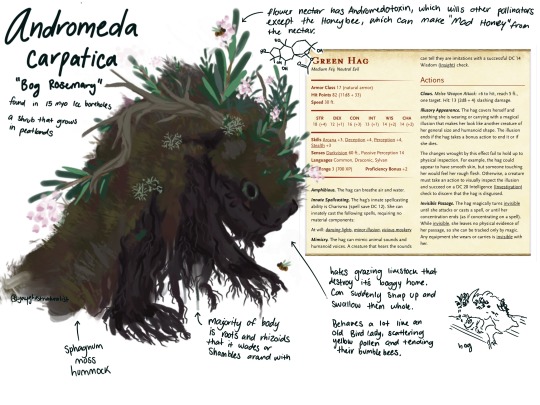
Reskinning creachers for my dnd character Cyphe to summon. She’s a necromancer for plants Paleobotanist! I’ve redone her spells with some botany flavor except the conjure/summon ones.
My methods: buy manual on trees and shrubs w 10,000 species. Read through all the A’s. Pick some cool ones, turn ecology into character notes. I need to mod these a bit with my dm.
#dnd art#botany#bog rosemary#dnd creature#dnd plant creature#botanical reskin#sphagnum#peat#hummocks#dnd#art#artists on tumblr#andromeda carpatica#paleobotany#concept sketch#concept art#creature#creature design#plant creature#hag#dnd hag
87 notes
·
View notes
Text




I fw moss. I fw peat. I fw sundew. I fw the bog 🗣🗣🔥
2 notes
·
View notes
Text

Cursed Moss Fact #001
Peat bogs in Finland regenerate as slowly as 10cm (about 4 inches) PER THOUSAND years. So when ‘mining’ peat, regeneration is discussed on a geologic time scale. Sphagnum (aka “peat moss”) is a genus of moss that occupies 1/3 of all land (or about 3% of the total earths surface). Note, some peat has no Sphagnum, or is made of other mosses and detritus.
One peat bog in the Catskills is between 14,700 and 15,100 years old (source).
The peachy-yellow and pink moss in the photograph is Sphagnum growing in a mini-bog in a greenhouse. Read more about mosses in Bryophyte Ecology by Janice Glime (link on pinned post on our main page)
#mosscore#cursed moss facts#moss fact#moss#sphagnum#bog#peat bog#botany#bryology#plant facts#botany facts#moss facts#science
33 notes
·
View notes
Text

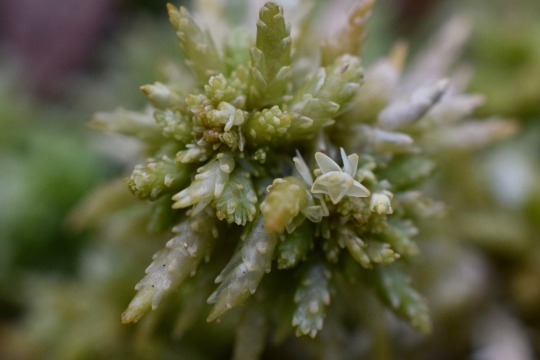
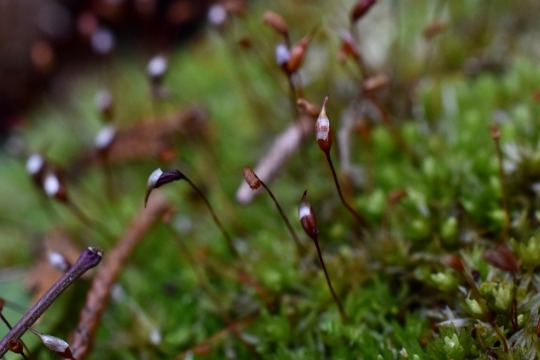
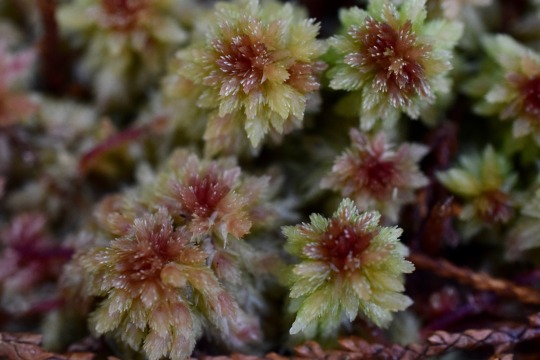
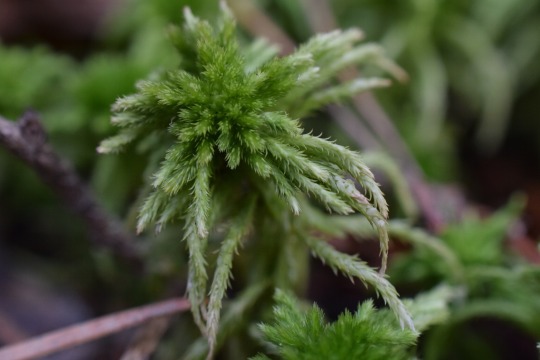
A few of my favorite mosses
23 notes
·
View notes
Text
I guess I really am a Giant Plant Nerd, because when the opportunity to walk around a bog in the rain in October came up, I was *ecstatic* and couldn't stop taking pictures of pitcher plants
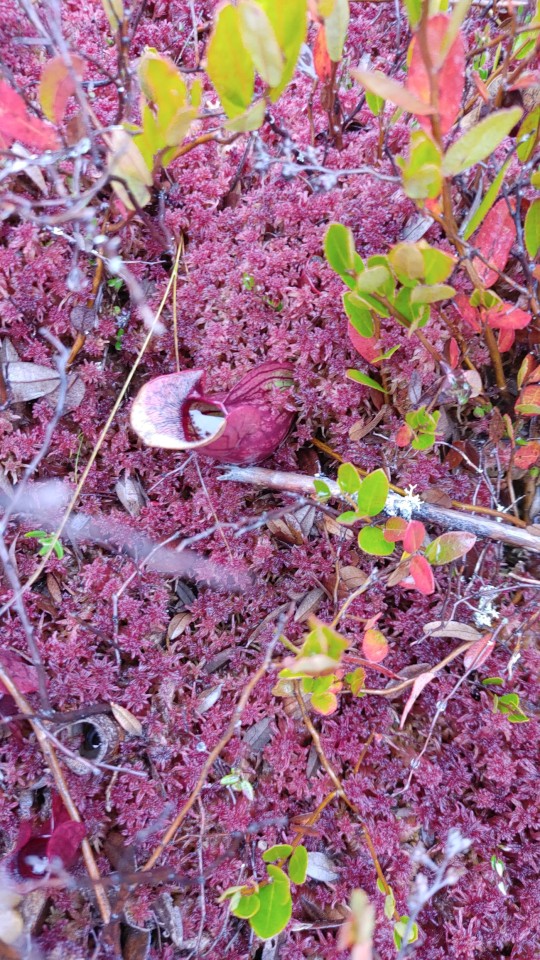


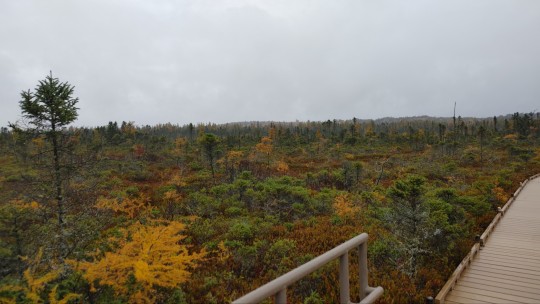
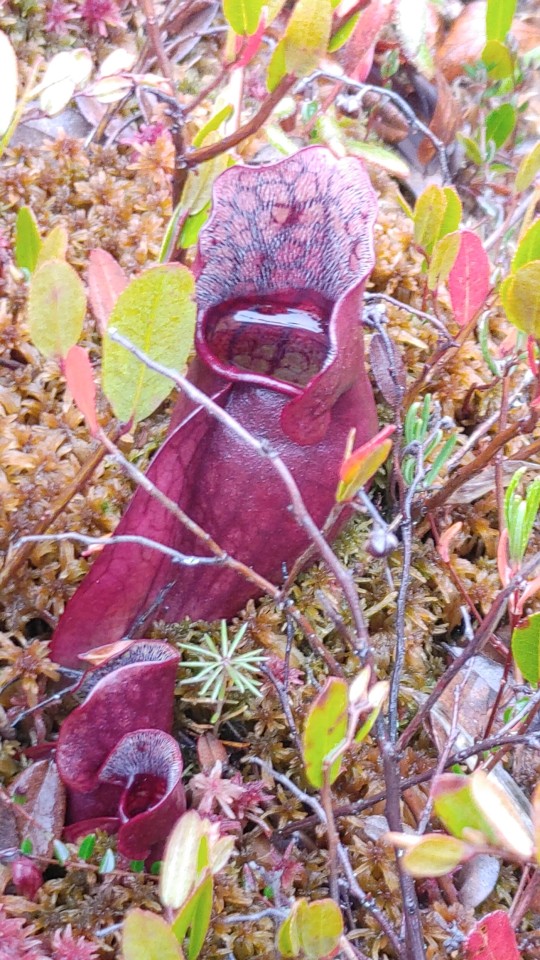
3 notes
·
View notes
Text



Sphagnum moss (Genus Sphagnum).
9/3/24. Cooperrider-Kent Bog, OH.
Sphagnum moss can absorb about 20x its weight in water. It was often used to treat wounds during the Civil War. Not only can it absorb a lot of fluids, but it has antibacterial qualities.
Sphagnum absorbs cations from its surroundings and exchanges them for hydrogen ions, making the environment acidic.
If sphagnum is present, you're likely to be in a bog.
1 note
·
View note
